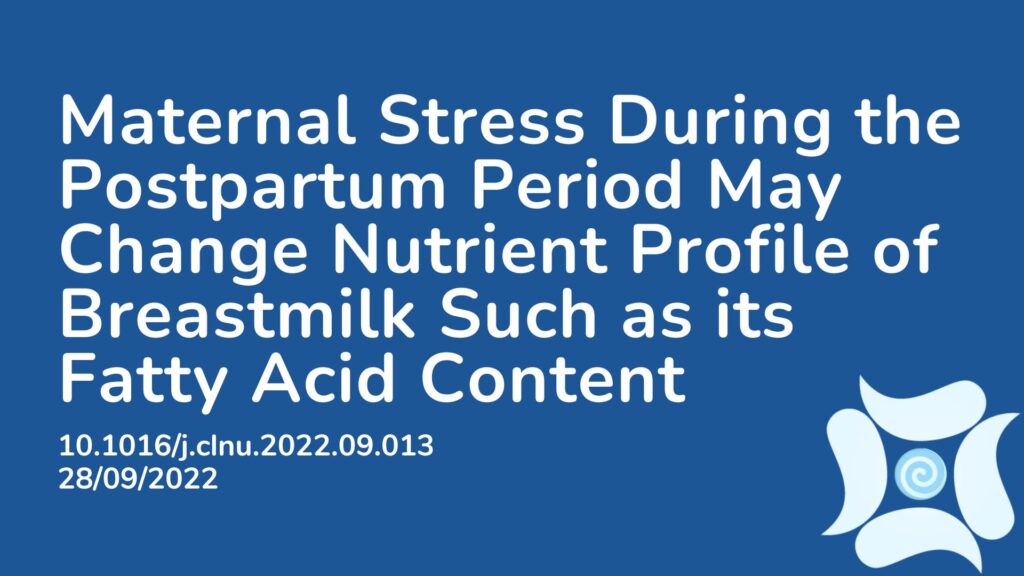Summary: The postpartum period can be a highly stressful time for women, caused by a number of different things, including a traumatic birth, hospitalisation post birth, lack of support, physical pain etc. Because postpartum stress is often unavoidable, understanding whether this has an impact on the health of the newborn child is critical. This paper investigated whether maternal stress during the postpartum period affects the nutritional composition of breastmilk, specifically the fatty acid content. Women who were pregnant, or had given birth within the last ten days were recruited and put into two groups: a high stress group and a control group. The results showed that there is a relationship between maternal stress in the postpartum period and the fatty acid profile of mature breast milk, which is defined as breast milk that has matured into its greatest volume and thickness after the colostrum period. After looking at the womens breast milk, stress was associated with lower concentrations of total fatty acids including saturated, monounsaturated and polyunsaturated fatty acids. To what extent these differences in concentrations are or what they can mean for the development of an infant remains unknown and should be examined in future research. Nonetheless, knowing that stress can impact the nutrient profile that a newborn is exposed to via breast milk is an important consideration for postpartum management.
Abstract:
Background & Aims: Maternal stress in the postpartum period affects not only the mother, but also her newborn child who is at increased risk for a wide range of disorders later in life. The mechanisms underlying transmission of maternal stress to the child remain elusive. Human milk (HM) is a potential candidate and is an important source of fatty acid (FA), which are crucial for child (neuro)development. This study aims to investigate whether maternal psychological and biological stress influences HM FA composition over the first month postpartum. Methods: The Amsterdam Mother’s Milk study is a prospective cohort study. We included lactating women who delivered at term with a large range of stress levels: a high stress (HS) group, women whose child was hospitalized for a minimum of 2 days (n=23) and a control (CTL) group, women who gave birth to a healthy child (n=73). HM was collected three times a day at postpartum days 10, 17 and 24. Perceived psychological stress was measured using multiple validated questionnaires, while biological stress measures were based on cortisol in hair, saliva and HM. HM FAs were analyzed by gas-chromatography and compared between groups. Results:Maternal perceived stress scores were significantly higher in the HS group (p<0.01), whereas cortisol measurements did not differ between groups. The absolute concentrations of total FA in HM (p=0.023), including the total amount of polyunsaturated fatty acids (PUFAs) (p=0.022) and omega-6 PUFAs (p=0.018), were lower in the HS group compared to the CTL group. Relative values of FAs did not differ between groups. Conclusion: Maternal stress in the first month postpartum was associated with overall lower levels of FA in HM. This possibly indicates a route of transmission of maternal stress signals to the infant. Future research should investigate if these stress-induced changes in HM FAs have consequences for child development.
Article Publication Date: 28/09/2022
DOI: 10.1016/j.clnu.2022.09.013



